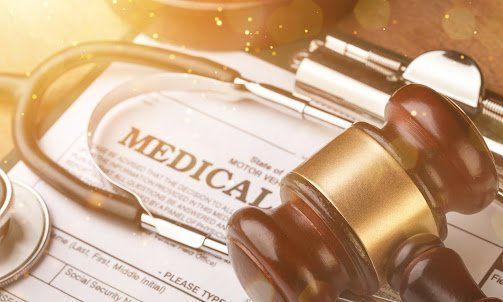Medical Malpractice: What You Need To Know For Your Case

What Exactly Is Medical Malpractice?
Simply put, medical malpractice occurs when a medical professional or care provider does something that results in medical errors due to a violation in the standard of care. However, these kinds of malpractice cases aren't usually cut-and-dry scenarios because these medical errors can result from intentional or neglectful action, inappropriate action or treatment, or inadequate medical care.
Malpractice cases don't just include large errors depicted on television or in movies — they can include smaller, more-difficult-to-prove interactions and treatment. In fact, some of the most common malpractice cases include:
- Surgical mistakes, such as doctors performing a procedure on the wrong patient or leaving surgical equipment (like sponges) inside a patient's body after an operation.
- Birth damage, including spinal cord injuries, bleeding in the brain, fractured bones, or other physical harm.
- Misdiagnosing a patient, which can lead to fatal consequences for the patient.
- Failing to treat a patient, where a care provider accurately diagnoses a condition but refuses or fails to provide the proper standard of care.
- Failing to properly test patients, which includes ordering appropriate scans or labs and treating conditions based on those tests.
While the law provides you an opportunity to receive justice for your injuries or any harm a doctor has done to you, different states maintain varying laws around the matter. Working with an attorney on your malpractice case ensures you approach your situation properly so you can receive just compensation.
What Signs Indicate You've Experienced This Kind of Malpractice?
Proving medical malpractice can be tricky. A bad experience with a medical professional or receiving a poor outcome from medical tests doesn't necessarily mean a doctor or staff member acted maliciously or neglectfully.
And depending on the entities involved, potential malpractice cases can be settled before they even reach a court of law. For example, a care provider may apologize for something that went wrong during treatment or for making a mistake. Or medical care facilities may quickly settle with insurance companies and the affected individuals before discharge to avoid potential ramifications later on.
However, if you've experienced neglect, harm, or mistreatment at the hands of any medical professional — such as the types of malpractice detailed in the preceding section — you're entitled to seek restitution for your injuries and any additional treatment you may seek to recover fully.
Who Is Involved in Malpractice Cases?
Like most legal cases, malpractice suits involve a plaintiff (the victim of medical malpractice), a defendant (the person being held accountable for the malpractice issue, usually a doctor, surgeon, another care provider, or medical facility), and both parties' legal counsel. Additionally, witnesses may be called to speak before a judge and/or jury if a malpractice case makes it to trial.
What Information Should You Provide?
The information you provide your attorney — and that should be presented in court for your case to be successful — includes:
- The medical provider's legal duty to treat patients with adequate care.
- That the provider's breach of duty to treat with said care, whether intentionally or through neglect, directly resulted in the victim's injury.
- That damage resulted directly from the sustained injuries and the victim should receive financial compensation.
When you visit a medical professional for any kind of care, they are automatically and legally required to provide you, as their patient, with reasonable medical care. By providing medical records with that physician's name on file, you can prove that the provider had a legal duty to treat you adequately.
To prove your medical care provider breached their duty of care and acted intentionally or neglectfully, you may need to rely on witness testimony (from experts or other individuals with firsthand knowledge of your case).
Legal professionals will also ask you to provide proximate causation, which is the direct relationship between the medical negligence and the injuries you sustained. For example, if a surgeon performed the wrong operation on you — you may not need additional witnesses, and you can prove that this incorrect surgery led to various complications post-operation.
Today, most everything has a cost value attached to it, including the cost of medical bills, lost income, and continuing care related to the medical malpractice issue. When a malpractice case is evaluated for compensation, providing documentation for these costs can help your case.
Ready to get started on a case or have more questions about medical malpractice? Get in touch with the legal professionals at Jeeves Law Group, P.A. We strive to handle your case as professionally and empathetically as possible so you can focus on healing from your injuries.


